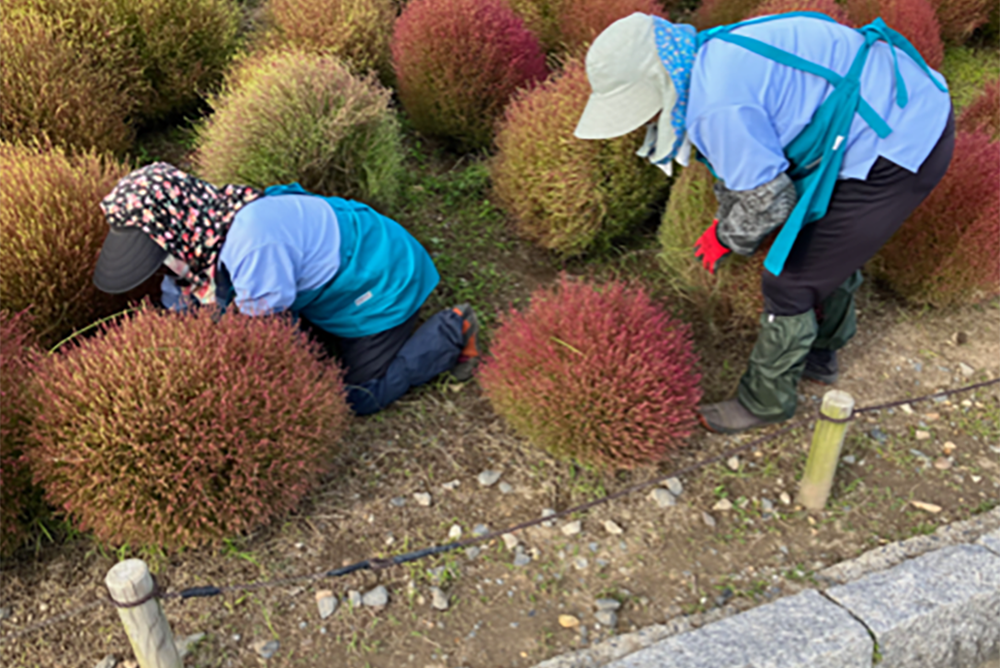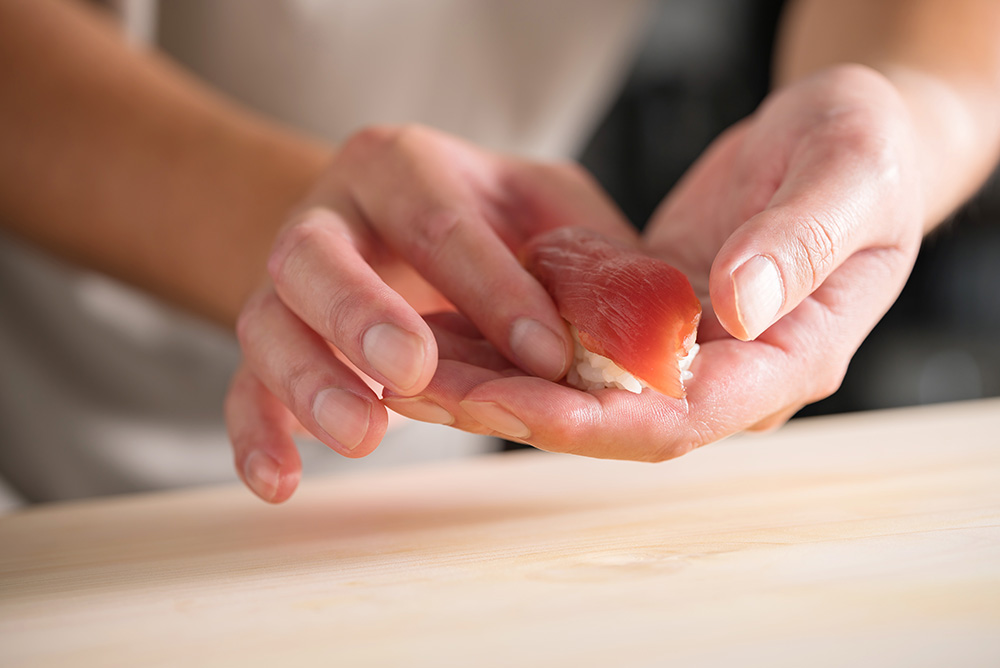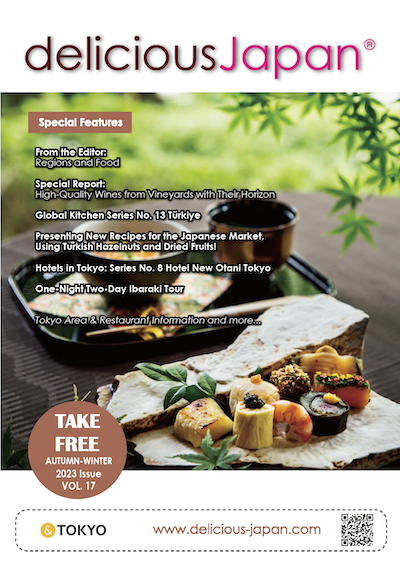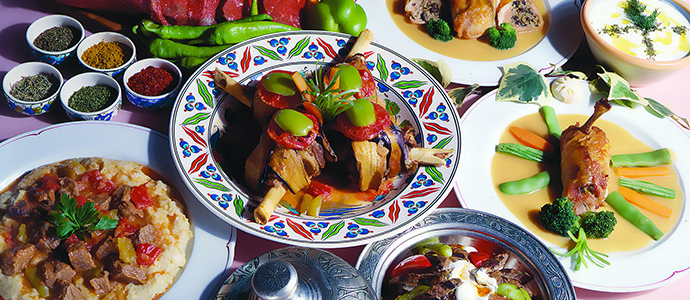
Global Kitchen Series No. 7 - Turkey
Discover the Potential

Murat YAPICI
Chief Commercial COunsellor Turkish Embassy
Office of the Commercial Counsellor
Can you start off with your brief introduction of yourself, including your mission at the Embassy?
I am the Chief Commercial Counsellor of the Turkish Embassy. The Ministry of Trade have appointed me to this position since August, 2018 for four years term. This is my second assignment to Japan. First one was 27 years ago as the Deputy Commercial Counsellor. Since I like Japan, had very good memories and intermediate level of Japanese, I was always longing to come again to Japan. I am very happy have another chance to work for the good of two friendly countries again a«er so long time.
My oice with 5 staff has two main responsibilities. First one is economic diplomacy in other words take role in government to government relations effecting economy and trade. The other one is trade promotion for the purpose of increasing exports from Turkey and attract more investment from Japan.
Please tell us about current economic relations between Turkey and Japan.
Turkey and Japan are two partners who have brought about exceptional relations in the past with deep reflections in our people`s hearts. Although located on the very western and the very eastern part of Asia, we have achieved to establish strong bonds.
On the one side, I hope to see more reflections of these bonds in our business world. In this regard I attach great importance to such continuing dialogue.
Our bilateral trade volume was recorded around 4 billion US dollars in 2019. Turkey exported 500 million US dollars to Japan. On the other side, Turkey supplied 3.5 billion US dollars’ worth of goods from Japan. According to latest statistics, Japanese investments stock in Turkey is around 1.8 billion US dollars. There are 248 Japanese companies from food to auto industry invested in Turkey. Some of these are producing pasta, tomato paste, drink, sauce, ham et. in Turkey and exporting to all over the world including to Japan.
The support of brother and fellow Japanese companies in this journey is much appreciated. We expect continued support from the Japanese manufacturers and capital-holders to enhance the Turkish manufacturing base.
As for our bilateral trade, we see a need for collaboration and joint projects to balance the current state which has prevailed for a long period in order to sustain and further improve our trade level.
More importantly, we wish to establish a free trade area between Turkey and Japan. For this purpose, Turkey-Japan Economic Partnership Agreement negotiations started in 2014 are still ongoing and very near to conclusion.
What do you mainly export to Japan in the food and beverage sector?
Turkey is a major player in agriculture sector. The climate and landscape allows for a wide variety of agricultural produce for local consumption as well as for exportation. In 2019 Turkey’s globally exports in agricultural products realized as 19,7 billion USD.
Main agricultural produce and other food items heading for outside markets can be listed as fruits and nuts, pasta, preparations of vegetables in different ways, fish, tobacco and vegetable oils.
Actually, Japan's imports from Turkey in agriculture are items along these lines. In 2019 Turkey exported 226 million USD amount of agricultural products to Japan which corresponds to 22.2 % increase comparing to 2018. Considering that Japan imported 73,4 billion USD amount of agricultural products from all over the world in 2019, we believe that Turkey with its great agricultural production capacity and high quality standards at international level can satisfy the Japanese market successfully.
Japanese taste is suited for Turkish tuna fish and molluscs. Pasta, tomatoes and olive oil are another
group of products Turkey contributes to Japanese cuisine. Turkish dried sultana resins, dried figs, dried apricots and hazelnuts are major supplier of Japanese needs for those products. Hereby, I would like to take your attention with one example Turkey has recently increased its exports in pasta products to Japan and became the fourth biggest importing partner of
Japan in 2019 with the amount of 40 million USD.
I am sure that Turkey can easily rank as number one pasta product importing country for Japan in the coming period. Since one of the Japanese food group company made an investment in Turkey in pasta production, that contributed to this developing trend. For that reason we are aiming to receive to attract more Japanese investment companies in the agriculture sector so that both countries can benefit from the real potential.
Fowl meat, frozen vegetables, chocolates, confectionery, salmon trout, fresh grapefruit, fruit juices are some examples of trendy items among Turkish exports. There are many reasons for a growing market for such Turkish products in Japan.
First of all, the taste! Turkish climate and nurturing soils are among the world`s best. Turkey has been a cradle of civilisations which stood firmly upon variety and abundance of agricultural produce. Turkey enjoys four seasons like Japan.
For more modern aspects you could point out Turkey’s well-established quality control system which is in line with advanced western food safety standards. Stable supply could be considered as another merit for importing from Turkey.
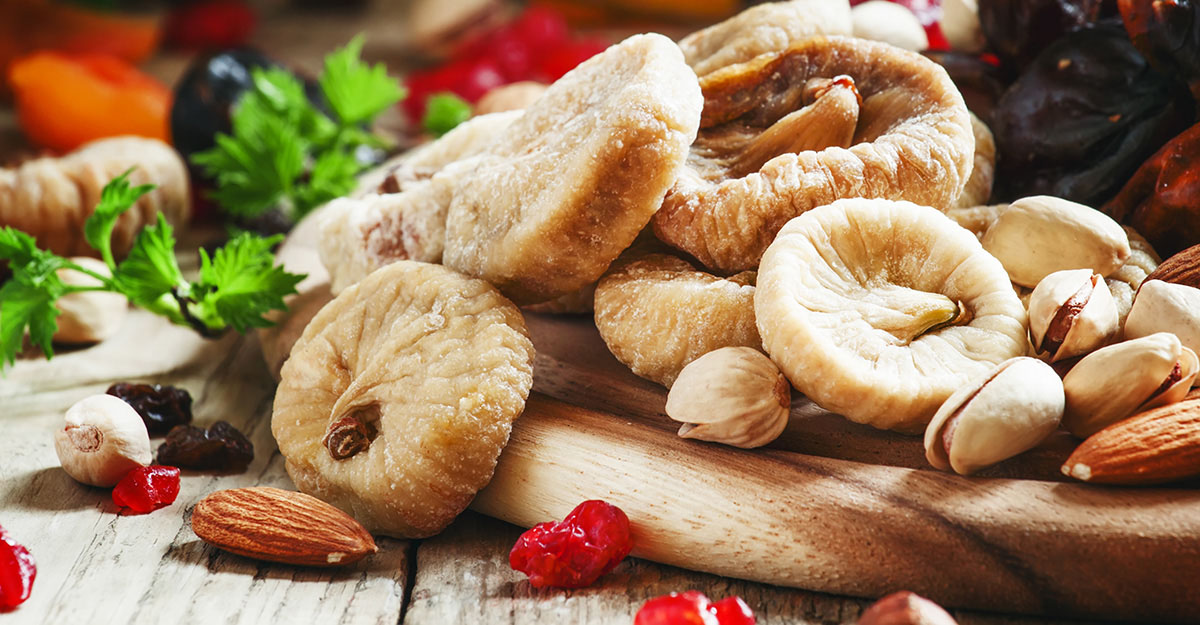
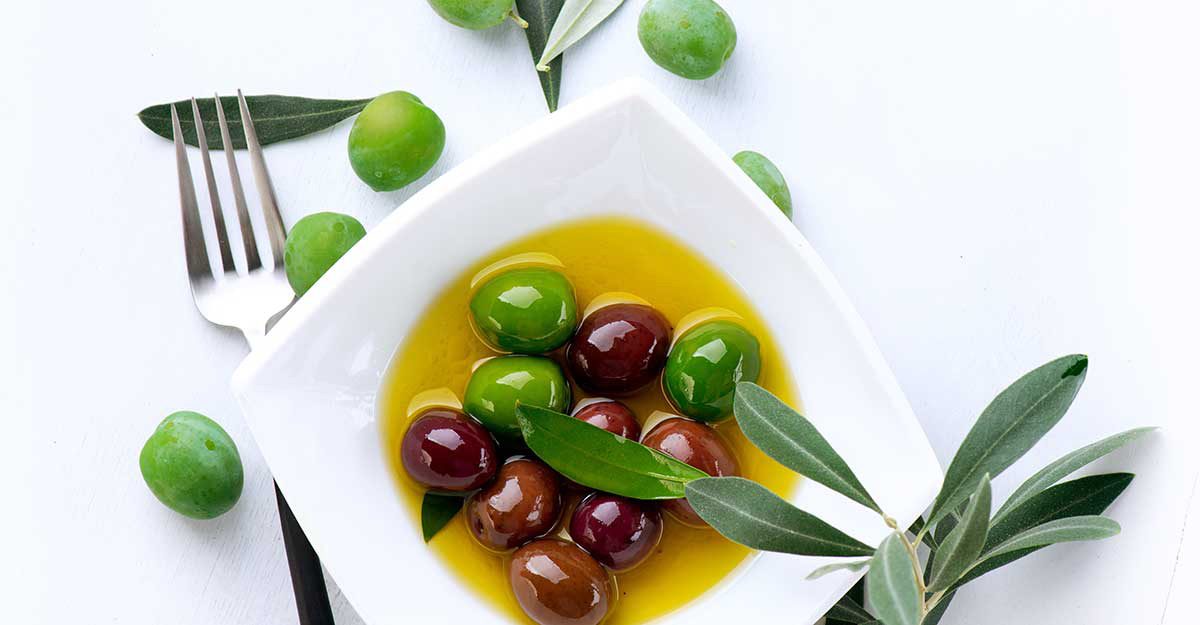
How is Japanese market regarded in your country? Are there any differences with approaches to other countries?
Japan has been a reliable partner for investments in Turkey. Many infrastructure landmarks include Japanese engineering and high-end technological products. It requires a lot of hard work and perseverance to achieve this. Japanese ask for such level of care and attention to quality in food products as well.
Also Japanese dedication to environmental protection and food safety is well known and highly appreciated. Image of Japanese food markets in Turkey can be described as neatly packaged fruits of exactly same shape and size are lined up for high end consumers. Freshness and seasonality are seen as other important aspects. Overall Japanese market is not so easy to enter.
Turkey and Japan has historically focused on trade with their partners at closer regions. Our exports are oriented more towards Europe, Russia and the Middle East regions. Japan`s foreign trade is concentrated more in the East Asia and Pacific regions.
There are some differences in standards. Sometimes factory settings and product specifications need to be adjusted to suit Japanese customers. Another difference is in transportation methods. Road transport is more commonly used in Turkey for foreign trade. But this is not possible when trading with island countries such as Japan. So shipping and forwarding companies play an important role.
One last difference is regarding trading organization in Japan, where well-known trading companies have wide presence in foreign as well as domestic wholesale trade. Small and medium sized agribusiness companies feel more comfortable when trading with other small and medium companies at closer geographies via road transport.
What do you see as chances and difficulties of Japanese market?
Some difficulties are based on above-mentioned differences of the Japanese market. Physical distance is one of the main criteria for deciding to export fresh agricultural produce. So mainly frozen, dried or processed food is directed from Turkey to Japan. We could work together to create opportunities to introduce Turkey’s important potential for fresh vegetables and fruits in Japan. In this regard, it would help increase our trade to clear necessary quarantine procedures more smoothly and more speedily. It takes time to achieve certain levels of trade volume and effort to keep those levels. Japanese partners have long established trade culture which is a valuable asset. Japan and Turkey share characteristics of Asian culture. Maybe that makes Turkish companies to work and communicate
comfortably with their Japanese counterparts.
There is great potential for increasing current level of trade in major items and widen the product range by adding new ones. The EPA will eliminate or reduce tariffs and non-tariff barriers to trade. Since the customs duties are high in the field of agriculture and food products, once the EPA concluded, it will reduce the cost of importation from Turkey. This will encourage Japanese importers to buy more from Turkey.
What are your plans for Turkish food to take further root into Japanese market?
We encourage Turkish companies to actively participate in trade fairs. Trade fairs provide opportunities to observe Japanese expectations for food products, recent trends so on. They are
also a meeting place for potential partners and for deepening existing ties. Also business matching activates organised for specific target products tend to increase success for bringing about new partnerships.
We hold seminars about trade and investment potential between Japan and Turkey. Last one was held in Kobe towards the end of February with success. We also encourage Japanese companies
in food business to visit Turkey, join local as well asinternational trade events and enjoy the local food and beverages. This way, they can witness the taste, quality and atmosphere of Turkish food culture by first-hand experience.
We are also organising Buyers’ Mission from Turkey to international food exhibitions organised in Turkey, e.g. WorldFood Istanbul 2-5 September 2020. Potential importers are invited to join mission.
Accommodations and transfers are provided by us. For high potential buyers, we pay for overseas flight ticket to Turkey as well.
Lastly I want to mention that, we are ready to help and be their first point of contact for Japanese companies considering to develop business with Turkey.

